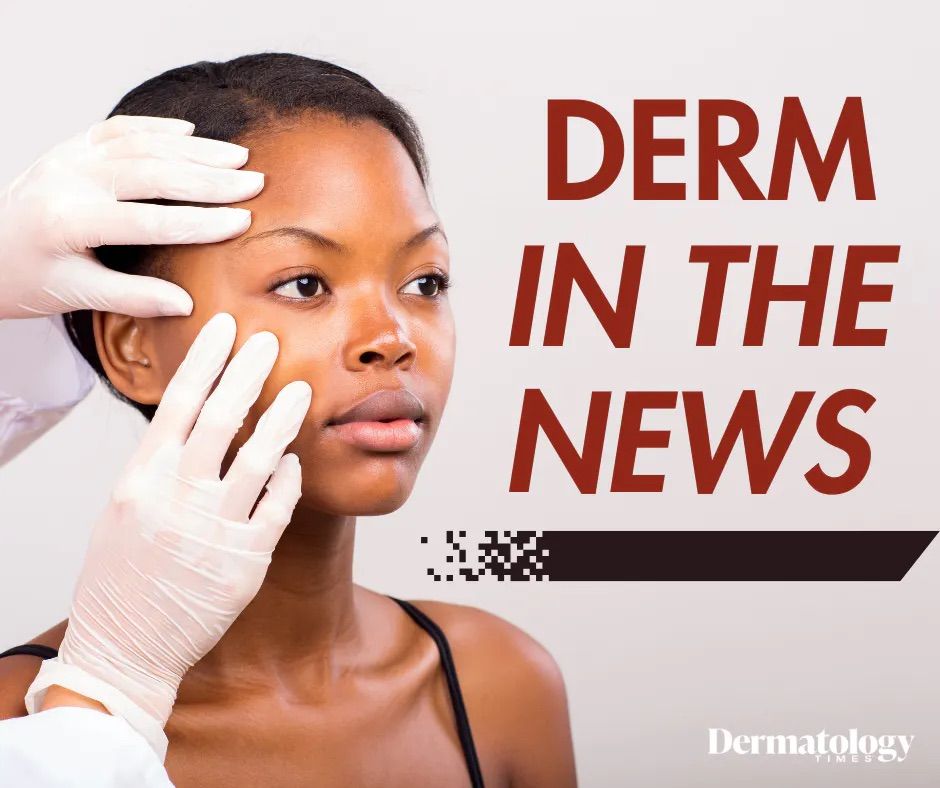Patient-Forward Rundown
Top headlines from this week to share with your patients:
News
Article
Author(s):
Keep up with the latest headlines in dermatology from the past week, including health alerts and warnings of counterfeit Botox in several states, Washington state's first clinic with radiation therapy for nonmelanoma skin cancer, and more

Counterfeit versions of Botox have been discovered in multiple states, leading to at least 19 cases of botulism-like illness among patients who received injections for cosmetic purposes. The Food and Drug Administration and the Centers for Disease Control and Prevention are investigating these cases, primarily affecting women in their mid-20s to late 50s. Symptoms include blurred vision, difficulty swallowing, drooping eyelids, and muscle weakness.
Read more from Dermatology Times here.
A dermatology clinic in Mill Creek, Washington, has become the first clinic in the state to offer radiation therapy for nonmelanoma skin cancers. Frontier Dermatology now offers Image-Guided Superficial Radiation Therapy, a painless, nonsurgical approach with a high cure rate. This advanced treatment, utilizing low-level radiation, targets skin cancer while minimizing side effects and scarring. With Washington state experiencing a higher melanoma rate and Snohomish County identified as a hotspot, prevention remains crucial through sun protection and regular screenings.
Top headlines from this week to share with your patients:
A recent study published in Environment International revealed that cancer-causing flame retardants, known as polybrominated diphenyl ethers, found in everyday items such as plastics, furniture, and electronics, can be absorbed by the skin and enter the bloodstream within 24 hours. Using a state-of-the-art 3D-printed skin model, researchers from Brunel University London and the University of Birmingham found that sweatier skin absorbs more of these chemicals from microplastics than dry skin does.
San Diego-based biotech company DermTech is undergoing a significant restructuring, including a 56% reduction in its workforce and exploring potential sale options. DermTech's board is working with investment banking firm TD Cowen to consider various options, including acquisition, merger, or sale of assets. Despite the restructuring, the company intends to maintain laboratory operations and continue offering its DermTech Melanoma Test.
Scientists have uncovered how skin cancer cells adapt their shape based on their environment, aiding in their spread throughout the body and causing metastatic cancer. The discovery of 2 genes responsible for sensing the environment and regulating cell shape offers potential new drug targets to prevent cancer metastasis. Using a 3D imaging system, researchers identified genes TIAM2 and FARP1 that play crucial roles in melanoma cells' ability to change shape in response to their surroundings.
Several popular skin care brands are cautioning tweens against using certain products amid the rising trend of skin care among young individuals. Drunk Elephant advised against products containing acids and retinol for kids and tweens unless approved by a doctor. Bubble warned against using their exfoliating serum, Moon Walk, for those under 14. Kiehl's discouraged young people from extensive skin care routines, while The Ordinary advised teens against using 10-step routines.
Cydney Carter, now 27, from Colorado Springs, Colorado, experienced the onset of hidradenitis suppurativa (HS) at the age of 12. Despite years of suffering and misdiagnosis, she finally received a diagnosis at 17, but found little relief as treatment options were limited and awareness of HS was scarce. Carter's journey, marked by secrecy and pain, led her to advocate for herself and others affected by HS, aiming to reduce stigma, increase awareness, and promote understanding within the medical community. Through sharing her story on social media and participating in awareness campaigns like Make HStory, she hopes to empower others and foster a supportive community for those living with HS.
Have you seen any dermatology headlines this week that we may have missed? Share with us by emailing our team at DTEditor@mmhgroup.com.